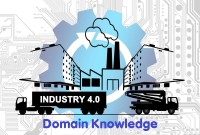- Home
- Business Processes
- Industry Knowledge
- Aerospace Industry
- Automotive Industry
- Banking Domain
- BFSI Industry
- Consumer/ FMCG Industry
- Chemicals Industry
- Engineering & Construction
- Energy Industry
- Education Domain
- Finance Domain
- Hospitality Domain
- Healthcare Industry
- Insurance Domain
- Retail Industry
- Travel and Tourism Domain
- Telecom Industry
- Leadership Skills
- eLearning
- Home
- Leadership
- Creativity Tools
- Know Yourself & Your Values
Know Yourself & Your Values
At different points in your professional career, it is helpful to identify your core values. Values are the qualities considered to be the most important guiding principles that determine the priorities in your life and greatly influence your career choices. Your career brings happiness when it is in agreement with the beliefs you have about what is important and meaningful to you. Awareness of your values will help you develop a clearer sense of what's most important to you in life.
Your beliefs become your thoughts, Your thoughts become your words,
Your words become your actions, Your actions become your habits,
Your habits become your values, Your values become your destiny
- Mahatma Gandhi
What are Values?
The dictionary definition of Values is “The important and lasting beliefs or ideals shared by the members of a culture about what is good or bad and desirable or undesirable.” Rockeach (1973) defines values as "a specific mode of conduct or end-state of existence is personally or socially preferable to an opposite or converse mode of conduct or end-state of existence."
Importance of Values for Individuals:
Values provide a framework for making choices between desirable and undesirable responses. Values are derived from the basic assumptions held by a group of people about themselves, others, and the world. Values also refer to priorities that an individual assigns to a multiplicity of goals. It thus provides direction to individuals and determines the intensity of individual responses. The stronger the value system more intense will be the action in pursuit of that value. Values have a major influence on a person's behavior and attitude and serve as broad guidelines in all situations. Some common business values are fairness, innovation, and community involvement.
Your values are the things that you believe are important in the way you live and work. They determine your priorities, and, they're probably the measures you use to tell if your career is shaping and progressing the way you want it to be. When the things that you do and the goals that you chase match your values, you feel accomplished, satisfied, and content. But when your actions don't align with your values, you feel unhappiness. Values thus affect all our decisions and actions and have a self-prophetic impact on our being.
Values in Organizational Context:
In order for organizations to achieve unity of action amongst diverse employees, it is imperative for them to articulate core values and seek adherence to those values by individuals. The core values of an organization are derived from the vision and expectations of strategic stakeholders.
In the global economic order, sustenance and growth of organizations depend on becoming active agents in transforming the environment to make it conducive to give expression to their ideas and intentions. This leads to the need for developing organizational vision and articulating a set of values providing focus to their responses to the demands of internal and external stakeholders. Values provide a framework enabling individuals to prioritize their actions, make a choice of options, determine preferred ways of responding, and distinguishing between desirable and undesirable responses. Given its significance, it is obvious that unity of action amongst employees towards the common purposes of the organization cannot be achieved unless they adhere to a common set of values.
In the pre-liberalization era, the value system in organizations grew primarily out of the societal value system making the organization microcosms of the larger society. In the current and emergent scenario, organizations need to make deliberate choices with regard to developing value systems which would enable them to gain and maintain a competitive edge. Most organizations, therefore, articulate core values such as quality, customer satisfaction, environmental protection, employee development, human dignity and respect, integrity, technological development, social responsibility, etc. and make them an integral part of their day to day functioning.
How does Value System operate?
Personal Values provide an internal reference for what is good, beneficial, important, useful, beautiful, desirable, constructive, etc. Values generate behavior and help solve common human problems for survival by comparative rankings of value, the results of which provide answers to questions of why people do what they do and in what order they choose to do them. Values operate at least at three levels: individual, socio-cultural and organizational levels. Individuals belonging to the same socio-cultural environment may differ in terms of their value system. At the individual level, value tends to differ in, terms of their importance and intensity. Every individual, therefore, develops a hierarchy of values. Socio-cultural value systems are derived from the basic belief about the nature of society and its relationship with the environment. It has its historical roots in the cultural traditions of the society and in its triumphs and trials. Likewise, organizations, develop their own value system arising primarily cut of compulsions to survive as a viable entity.
Adherence to Organizational Values:
Most organizations articulate certain core values that must be adhered to by the employees. The success of adherence to these values relies on the effort, dedication, and adherence of these values by its employees in their daily operations, the way they treat their colleagues, deal with strategic/external partners, and how they deliver results. Employees must learn to accept these values and start believing in them and follow them in their day to day actions. When values are shared by all members of an organization, they are extraordinarily important tools for making judgments, assessing probable outcomes of contemplated actions, and choosing among alternatives.
Establishing moral principles means determining the core values which should guide the organization, however, an organization may publish one set of values, perhaps in an effort to push forward a positive image for the outside world, but the values that really guide organizational behavior in practice may be very different. When there is a disconnect between stated and operating values, it may be very difficult for employees to determine what is "acceptable."
Value Actualization:
Core values developed by the organization must be internalized by organization members so as to bridge the gap between the value system of the individuals and the collectivity. However, what if members of the organization do not share and have not internalized the organization's values? Obviously, there will exist a disconnect between individual and organizational values and the value system will be dysfunctional. In the absence of conscious effort to develop a shared value system, the employees will continue to adhere to their archaic value system derived from the old assumptions, or by the predominant value system prevalent in their social-cultural environment. In either case, the organization will not be able to optimally channelize the energies and efforts of its members towards purposive action. It is advisable therefore within the overall framework of the corporate value system, every department, every function, and identifiable product or service group must develop operational values relevant to the demands of their task and their respective contexts.
Explore the Checklist on Values and gain a better understanding of yourself!
Related Links
You May Also Like
-
How often do you have a plan for how you are going to spend your day but you aren't able to complete the tasks on your plan because of unimportant tasks, interruptions, or your own procrastination? Wouldn't it be great to be able to manage your schedule and your time while avoiding, or at least controlling, these time stealers? Learn the strategies to manage your schedule while still handling interruptions and demands on your time.
-
Develop your Leadership Skills
There are a number of broad skill areas that are particularly important for leaders. Today's demanding global business landscape is defined by relentless change and rising business complexity, bringing new challenges. Leadership skills provide career-enhancing resources and support you to be exceptionally successful in your career. Leaders need to provide direction to their teams and need to be able to make good and timely decisions to define and support strategic direction for the enterprise.
-
Reasons behind Wastage of Time
Under-utilization of time may be due to the faulty system or faults of manager/officer/leader or due to lack of planning. There could be many factors driving the procrastination behavior like system issues, personal work habits, and lack of delegation, personality traits, and bad working habits of the leader, failure to tackle interpersonal conflicts, obstacles, and lack of far-sightedness.
-
Guide to Technical Leadership Skills
Technical leaders care about building amazing products and the best technical capabilities in their teams. Everything they do is focused on improving the user experience and bringing competitive advantage for their organization. Learn the skills and competencies you need to build a technical career path for yourself that starts with building technical expertise and grows into developing technical leadership.
-
Time management is the process of planning and exercising conscious control of time spent on specific activities, especially to increase effectiveness, efficiency, and productivity. The best time management techniques improve the ways you work. Time management refers to managing time effectively so that the right time is allocated to the right activity. Learn more about the five steps for effective time management viz. study, identify, analyze, decide, and implement.
-
Tips for Effective Time Management
After studying and analyzing how time is spent, why time is wasted, and where time is wasted you need to decide about the changes required for effective utilization of time. For this purpose, a large number of remedial measures can be taken by you. The first and foremost determinant of a planned and purposeful utilization of time is to develop consciousness of the value of time at all levels of the organization. Planning, goal setting, and defining priorities are concerns to addressed immediately.
-
Improving Skills & Competencies
Whenever you are looking for a job or having your yearend discussion with your manager, two terms generally referred to be “Skills” and “competencies”. Today success in a career is an outcome of having essential competencies and building required skills. Skills could be a major distinguishing factor for you to move up on the career ladder and jump from one role to another. Leadership skills when combined with relevant domain and functional expertise can transform your entire career growth and help you have a fulfilling career.
-
Building Your Domain Knowledge
Domain knowledge from a career management perspective encompasses the understanding of industry dynamics and business processes of the target operational area. Domain expert exhibits clear knowledge in the respective industry and understands the industry concepts in general. It is always recommended to best highlight your exposure of domain in your resume or cover letter. TechnoFunc provides you with the best tutorials to gain domain knowledge in a large number of industries and business areas.
-
Evidence of the medically damaging symptoms of work stress necessitates applying the treatment of stress management. Stress management is increasingly drawing the attention to the management experts not only as a remedial measure but also as a way to resource management. If the workplace can be made a little more lovable the increase in the achievement of the organization may be much time more. If group stress can be removed by introducing group discussions and recreational facilities a long-lasting team spirit may get developed.
-
At different points in your professional career, it is helpful to identify your core values. Values are the qualities considered to be the most important guiding principles that determine the priorities in your life and greatly influence your career choices. Your career brings happiness when it is in agreement with the beliefs you have about what is important and meaningful to you. Awareness of your values will help you develop a clearer sense of what's most important to you in life.
Explore Our Free Training Articles or
Sign Up to Start With Our eLearning Courses

About Us
Learning
© 2023 TechnoFunc, All Rights Reserved










